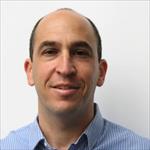
An analysis from the ENGAGE AF-TIMI 48 trial has found that sudden cardiac death was the single most common cause of death and accounted for about a third of all deaths and nearly half of all cardiovascular deaths amongst 2,349 atrial fibrillation patients.
The report, published in the current issue of the Journal of the American Heart Association by Alon Eisen (Brigham and Women’s Hospital, Boston, USA and Harvard Medical School, Boston, USA) and others, calls for the need to “examine treatment modalities in addition to anticoagulation” to reduce sudden cardiac death rates in patients with atrial fibrillation.
Recent data suggest that atrial fibrillation is independently associated with an increased risk of sudden cardiac death. “In patients with established atrial fibrillation treated with anticoagulation, sudden cardiac death accounts for >20% of all deaths. In addition, patients with atrial fibrillation have, on average, a 2.5-fold increased risk of sudden cardiac death or ventricular fibrillation compared with patients without atrial fibrillation,” write Eisen et al.
The authors note that there is not complete clarity on the mechanism underlying the causal association between sudden cardiac death and atrial fibrillation. “Although atrial fibrillation and sudden cardiac death share common risk factors such as heart failure or coronary artery disease, the association between atrial fibrillation and sudden cardiac death does not seem to be entirely dependent on these risk factors,” the authors comment. Therefore, they set out to examine the incidence, characteristics, and factors associated with sudden cardiac death in a contemporary large cohort of patients with atrial fibrillation.
ENGAGE AF-TIMI 48 (Effective anticoagulation with Factor Xa next generation in atrial fibrillation‒thrombolysis in myocardial infarction 48) trial was a randomised, double-blind, double-dummy, multinational trial that compared two dosing regimens of edoxaban (Daiichi Sankyo) with warfarin in over 21,000 atrial fibrillation patients. In this analysis, the authors also examined the treatment interaction between edoxaban and warfarin with regard to sudden cardiac death.
From 2,349 patients who died over a median follow-up of 2.8 years, 1,668 (71%) died from cardiovascular reasons. Eisen et al found that sudden cardiac death was the single most common cause of cardiovascular death with 749 patients, accounting for 31.7% of all deaths and for 44.9% of all cardiovascular deaths. Heart failure or shock, fatal ischaemic stroke and fatal bleeding were other common causes of cardiovascular death with 390 (23.4%), 146 (8.8%) and 124 (7.4%) deaths respectively.
The authors also highlight that patients who experienced sudden cardiac death were mostly men (70.6%) with a median age of 73 years. The majority had persistent or permanent atrial fibrillation (82.9%), had heart failure symptoms at baseline (72.9%) a CHA2DS2-VASc score of ≥4 (75.4), and a lower ejection fraction.
In order to identify independent predictors of sudden cardiac death, the researchers used a multivariate competing risks analysis using the sub-distribution hazard model accounting for other cardiovascular death and for non-cardiovascular death. Amongst the predictors they found older age, ejection fraction <50%, New York Heart Association functional class III‒IV and prior myocardial infarction.
Male sex, electrocardiographic left ventricular hypertrophy, higher heart rate, non-use of beta blockers, and use of digitalis were found as additional significant baseline predictors of sudden cardiac death, but not of other causes of death. Particularly, Eisen et al highlight that digitalis, was associated with sudden cardiac death regardless of heart failure status, which adds to the “concern” regarding digitalis treatment in patients with atrial fibrillation with or without heart failure.
The researchers also found that compared with warfarin treatment, the rate of sudden cardiac death was numerically but not statistically lower in patients treated with edoxaban; however, the reason for this “remains unclear”, Eisen et al note.
Among the clinical implications of this study, the researchers comment that some of the predictors of sudden cardiac death in patients with atrial fibrillation may be modifiable by careful considerations of pharmacological treatment, better control of heart rate and treatment of hypertension. Nevertheless, Eisen et al note that “future prospective studies should examine whether these modifications in treatment can reduce the risk of sudden cardiac death in patients with atrial fibrillation.”









